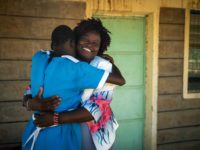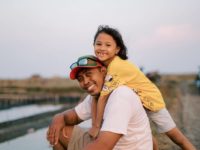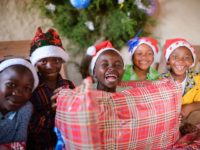Mwanza is located in the northwestern zone of Tanzania on the shore of Lake Victoria. It is the second largest city in Tanzania, with an estimated population close to 640,00 that is growing at a rate of 11.3 percent per year.
Mwanza is the most important port on Lake Victoria, and it is home to the terminal of a branch of the central railway line from Dar es Salaam. Its geographic location makes it an important transit point for business, people and travellers from Kenya, Uganda, Rwanda, Burundi and the outlying towns of Bukoba, Musoma and Shinyanga.
Mwanza City is characterised by gently undulating granites and granodiorite physiography with isolated hill masses and rocky inselbergs. It is also characterised by well-drained sandy loamy soil generated from course-grained cretaceous. The vegetation cover is typical savannah with scattered tall trees and tall grass.
Culture
Mwanza is known as Sukumaland because most of the population comes from the Sukuma tribe, which mainly covers the regions of Mwanza, Shinyanga and Tabora. Apart from speaking their native language, residents speak Swahili, which is the national language. Sukuma people are famous for traditional ngoma (drum music) and dancing.
Economic activities and employment
The majority of Mwanza people are self-employed. Most employed people work in the service sector, while those who are self-employed are involved in petty trade, tilling land, micro-fishing activities, etc.
The current employment figure in the city (employed and self-employed) stands at about 50 percent. The average per capita income is about $21 per month.
Fishing in Lake Victoria has a long, historic background. However, the introduction of Nile perch to the lake has changed both the social and economic nature of the sector. Today fishing is done mainly for commercial purposes, contrary to traditional fishing, which focused on household consumption.

Nile perch first appeared in Lake Victoria in the late 1950s. The fish is locally known as Mbuta or Sangara. It can grow to two meters in length and weigh up to 440 pounds.
The decline of cotton production, after the decline of the crop’s price on the world market and the death of cooperative societies in Mwanza in the early 1990s, changed the social economic development of the region. The emergence of the Nile perch trade has created new opportunities for development in the region.

A large quantity of sardines
Sardines are also fished in large quantity in Lake Victoria and are shipped all over Tanzania.
According to available statistics from fish processing plants in Mwanza and Musoma towns, the fish industry has created direct employment for over 8,000 locals and outsiders and indirectly employs about 300,000 others.
At the same time, an estimated 3 million people living around Lake Victoria in the Mwanza, Mara and Kagera regions also benefit from the Nile perch trade (popularly known as marine gold) in one way or another, causing the rapid growth of social and economic activities in the region.
There are also about 52,000 fishermen on the Tanzanian side of Lake Victoria who benefit directly from Nile perch.
Food Crisis Update
Mwanza has been impacted by the food price escalation, which has been caused by poor harvests in the past two years and the city’s population growth.
Mwanza is close to the Mara region, which neighbors Kenya. Whenever a food crisis occurs in Kenya, it is felt here because businesspeople take advantage of the shortage and export food across the border, thus creating further shortage in Mwanza and increasing prices.
The region also experienced low paddy harvests last year and this has complicated the situation. Most of the sponsored families struggle to make ends meet and to put food on the table.
Local Issues and Concerns
Mwanza is attracting a growing number of people who move to the area for business and work. However, this fast growth brings along an increased level of crime and the problem of street children.
The cost of living is also becoming expensive since the demand for services like housing, food distribution, education and health services keeps growing.
Another issue of concern for Mwanza has been the killing of old women and albinos as a superstitious practice. Mwanza and Shinyanga have been the areas where this practice continues. This practice has also been fueled by the people who associate the practice with gaining wealth in the gold mining business.
Home Life
Many families of sponsored children rent single or double rooms. The houses built on the hills are located in unsurveyed areas classified as squatter settlements, and most of them lack basic amenities like water and electricity.

Schools and Education
The government has made primary education compulsory for all school-age children. The system of education and the time a child spends in school is the same all over Tanzania. The only problem that has been experienced now is the lack of enough classrooms to accommodate children who qualify for secondary school education.
Church and Religion
The presence of the church is much felt in Mwanza, with the African Inland Church of Tanzania as the most prevalent denomination. There is also the presence of many other Christian denominations in Mwanza, like Lutheran, Anglican, Assemblies of God, Mennonite, and Roman Catholic.
Islamic religion is also evident in town, and the church and Islam coexist peacefully, although from time to time there are elements of tension between the two groups — especially when Christians organize public gospel rallies.







7 Comments |Add a comment
Hi Mark. We are in the exact same position: just got confirmation last week and will likely be moving to Mwanza in spring. Are you still considering going, or have you already moved there? I’d be interested to hear the answers to the questions you posed…
I am thinking of moving to Tanzania with my Family. The idea was to base ourselves in Mwanza. What is it like to live there? Is it possible to rent 3 or 4 bedroomed house? What is the international school there like? Is Malaria a big problem there? Is there Internet access?
yes mark there is enough house with more than 4 rooms..and there is international school..as well as 3.75 G internet access..for more info find me through [email protected]
I really admire Mwanza City: very calm, welcoming and prosperous. Pongezi watu wangu. Mwanza ooooyeeehhh!!!
Thank you for the post and thank you for the pics (especially the one of the sardines!). It makes a far off place not so far off.
Can anyone explain the paddy harvest to me ? I have 5 children in Tanzania and one mentioned her “paddy garden” in a recent letter.
I always associate the word ‘paddy’ with rice. Is this the same thing in Tanzania?
Thank you, Charles, for helping us all better understand the different regions of Tanzania!!
“Paddy” is the English term for rice still in the hull. The “paddy harvest” is the rice brought in from the rice paddies before it is threshed to remove the hull. Paddy, or unhulled rice stays good for a long time; once hulled it can quickly develop infestation by insects.